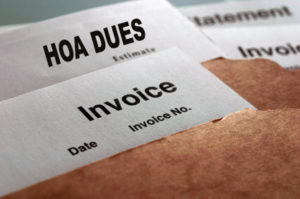HOA Dues and Home Affordability
HOA Dues and home affordability often go hand in hand. When searching for a home, you may end up selecting a property in a community with a Homeowners Association (HOA). Before you buy, it’s important to know how HOA dues may affect your payment.
What is an HOA?
An HOA is basically a governing structure for a planned community, such as a development of single-family homes, condominiums, or townhouses.
For anyone who’s lived in rental property, consider an HOA like a landlord or property manager: an entity that takes care of certain features to maintain the community and atmosphere in exchange for a fee — and your following of certain guidelines and rules.
According to a recent article on realtor.com,
“In a nutshell, an HOA helps ensure that your community looks its best and functions smoothly…The number of Americans living in homes with HOAs is on the rise, growing from a mere 1% in 1970 to 25% today, according to the Foundation for Community Association Research.”
However, it’s important for homeowners to understand that each HOA is a little different, and they usually have monthly or quarterly fees required for homeowners. These fees can vary based on property size, number of residents, amenities, and more. There may be additional fees charged to homeowners if the reserve fund for the HOA cannot cover a major or unexpected cost, like severe storm damage.
HOA Dues and your Payment
When you finance a home, the HOA dues are counted in your debt-to-income ratios. This means large HOA fees can significantly reduce how much home you can afford. HOA fees can also potentially affect how much a mortgage company may be willing to lend you, some experts say.
“The HOA fee is an important expense that can create a lien on the property if not paid, so like taxes and insurance payments, the bank will consider this to be part of your overall debt responsibility,” said Jonathan Faccone, founder of Halo Homebuyers in New Jersey and Pennsylvania. “Therefore, this extra expense will have an impact on your overall debt-to-income ratio, which the bank uses to base their lending amount limits.”
Let’s look at an example of how $200/month in HOA dues could affect affordability.
| No HOA | With HOA | |
| Loan Amount | $350,000 | $302,000 |
| Taxes | $150/month | $150/month |
| Insurance | $100/month | $100/month |
| HOA Dues | $0 | $200/month |
| Total Payment | $1726 | $1723 |
Looking at the chart above, you can see that $200/month in HOA dues can drop your overall loan amount by nearly $48,000 to $302,000 in order to have the same payment as a home that costs $350,000 without an HOA. High HOA fees can seriously impact how much home you can afford. You might be surprised to find out that you can afford a single family home for the same payment as a condo or townhouse with an HOA. It’s important to weigh the pros and cons of an HOA to see if the benefits outweigh the costs for you.
Pros
There are some benefits to living in HOA despite the added costs.
- Provide amenities such as trash service, snow removal, street lights, pools, playgrounds, walking trails, and common area maintenance
- Help keep up neighborhood appearance
- Reduce responsibilities by taking care of things such as lawn maintenance that you might otherwise have to do yourself
Cons
- An hoa can foreclose on your home
- They can add special assessments which will cost you additional money
- Lots of rules and regulations (parking, pets, RV’s, additions, sheds, etc).
- Can impose fines for breaking rules and other violations
- Possible pet restrictions
- Need approval for home modifications
Importance of Paying on Time
It’s important to know that letting your HOA fees go unpaid is sometimes just as serious as being delinquent on your home loan payments. HOA fees are not typically set aside in an escrow account like homeowners insurance or property taxes, so it’s important to set this money aside. In recent years, HOAs have successfully won in court the right to compel homeowners to pay delinquent HOA fees. Several courts have ruled that HOAs have the right to foreclose on homeowners for lack of payment.
Questions?
It’s important to talk to both a lender and a real estate professional when it comes to making these kinds of decisions. A lender can compare and estimate payments for you on properties with and without HOAs. A realtor can help pull the HOA rules, restrictions, and covenants to see if there are any “deal breakers” such as no RV parking or pet limits.
Please feel free to contact us with questions. We can also recommend several local, reputable lenders to answer questions about payment scenarios.




